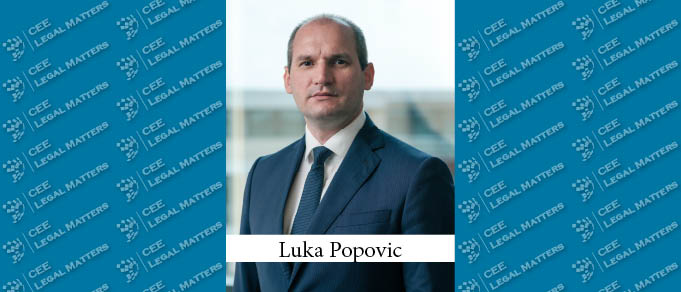Montenegro is making significant strides towards European Union membership by satisfying interim benchmarks in negotiation chapters 23 and 24, essentially aimed at strengthening the rule of law, according to BDK Partner Luka Popovic who shares a number of updates on important legislative changes in the country.
"Satisfaction of interim benchmarks under Chapters 23 and 24 in negotiations with the EU have been the key topics these days," Popovic begins. "These chapters focus on judiciary and fundamental rights, as well as justice, freedom, and security. A few years ago, the EU revised its negotiation model, requiring candidate countries to satisfy criteria on the most critical chapters before progressing with other negotiations." As Popovic reports, obtaining a positive report on satisfying these criteria represents "significant progress for Montenegro, offering a realistic perspective of joining the EU by 2028. Given the current geopolitical situation, the EU might expedite the process to send a strong message in the Western Balkans. I must say, this optimism is already influencing investors, as some are eyeing Montenegro as a future EU member state."
Focusing on specific legislative measures that Montenegro took to align with these EU requirements, Popovic reports heightened legislative activity in the past few months. "We’ve adopted around ten laws related to the court system, the state prosecutor and the special prosecutor for organized crime and corruption, fight against corruption, media. Although these laws were passed somewhat hastily and may require fine-tuning later, they meet the preliminary EU criteria." Additionally, he reports there have been updates to labor and company laws, focusing on refinements rather than revolutionary changes.
Highlighting a few upcoming legislative updates that businesses should be aware of, Popovic shares that a new company law is being prepared and is currently under public debate. "There’s also a draft for a new labor law, open for business comments. We expect a new competition protection law later during the year, and a set of energy laws in July." Crucially, Popovic stresses that the expected amendments of the energy law are "particularly significant, as they will enable more flexible terms for connecting new generators to the grid, despite current limitations."
Continuing, Popovic places a focus on the challenges the energy sector faces. "The energy sector is crucial for Montenegro, especially with numerous renewable projects in the pipeline. However, the existing grid infrastructure cannot accommodate new projects without significant investment." The solution, as Popovic reports it, has been to amend the energy law to allow operational limitations, meaning generators can connect to the grid but must assume the risk if the grid cannot intake their energy. "This flexibility has been welcomed by investors who are ready to invest but were hindered by the connection rules."
Popovic goes on to report that the Montenegro government has recently "terminated a concession agreement for the Briskovo mine, the largest concession project in Montenegro. This decision followed local activist concerns and a government review that found the investor allegedly in breach of certain obligations. Popovic feels that the termination was not justified and says that it could impact "Montenegro’s reputation as an investment destination and potentially lead to arbitration."
Finally, Popovic reports there are general reforms underway, focusing on "tax collection and the organization of the registry of commercial entities." Although there are obvious staff issues in the registry of commercial entities, the government seems aware of the issue, and it seems to be seeking solutions. "Additionally, last year, we amended the anti-money laundering law, and the focus afterward has been put on making the Ultimate Beneficial Owner registry functional. The registry still faces technical challenges but is expected to be fully operational by the end of the year." In conclusion, Popovic shares that he feels Montenegro to be at a pivotal point. "The legislative changes and EU accession prospects are promising, but it’s crucial to maintain momentum and address existing challenges. If we continue on this path, Montenegro could see substantial economic growth and stronger integration into the European community."

















